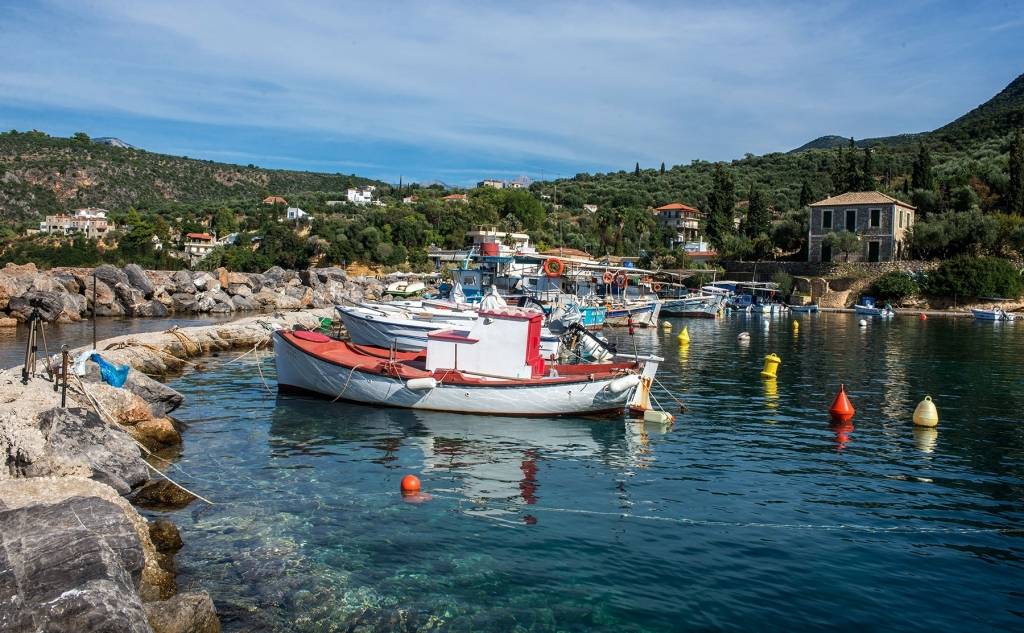





The picturesque, historic fishing village of Kitries (with the pebble beach) is just 12 km from Kalamata and has about 100 permanent residents. With lush vegetation and fantastic sea views, it is a summer resort. The village is famous for the fresh fish that can be savoured at the taverns by the sea. Kitries is also called "Dark Taygetos" because the mountains around the area hide the sun in the morning hours when the sun rises.
During the Turkish occupation, Kitries was the Beys of Mani seat and the most important port of the Messenian Gulf, Zarnata. The import and export trade of the wider area (oil, acorn and silk) took place from this port. On October 1st, 1819, the homonymous historical "Pact of Kitria" was established in Kitries, with which the prominent families of the Mavromichalis (Mavromichalides), Grigorakis (Grigorians) and Troupakis promised each other peace and union of their forces. Also, in March 1821, Petrobeis Mavromichalis took over as commander of the Spartan forces, following a decision of the assembled chiefs and captains. Rigas Ferraios was the first scholar who supported the action of the Mani people by writing in his Thourios:
"Mani and Souli people, famous lions, how long will you be sleeping safely in your caves".
At the entrance of Kitries (next to the Beis’ tower), the small church of Saints Constantine and Helen, built in 1730, stands and is the oldest building in the village. In Kitries, there is also the stone house of Petrobei Mavromichalis, which is not visitable. The building has been designated a historic monument by the Ministry of Culture.
The whole peninsula, which is the end of the overlying eastern mountains Kefali (or Kefalovouni), forming two ambiguous coves, is also called Kitries. At the Cape of Kitries is the homonymous Lighthouse of Kitries, which was built in 1892 and resembled a tower house in Mani. It is one of the oldest and most imposing lighthouses in Messinia, and today it is automated by operating on solar energy.